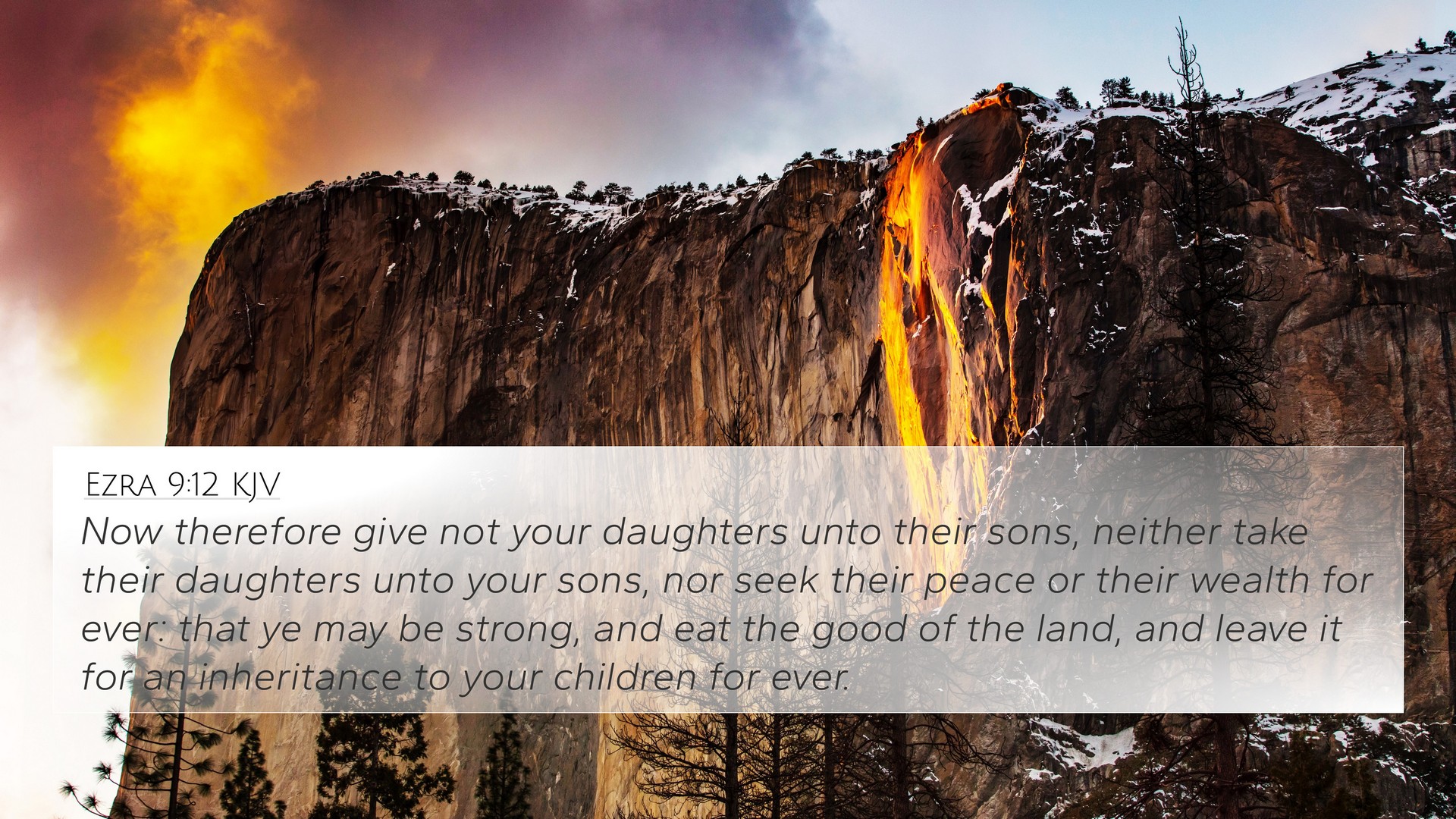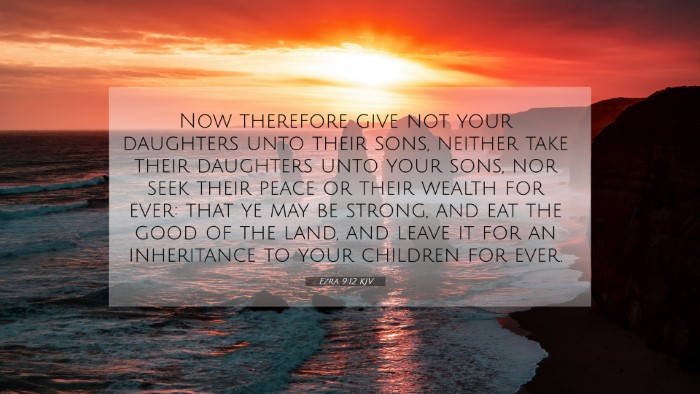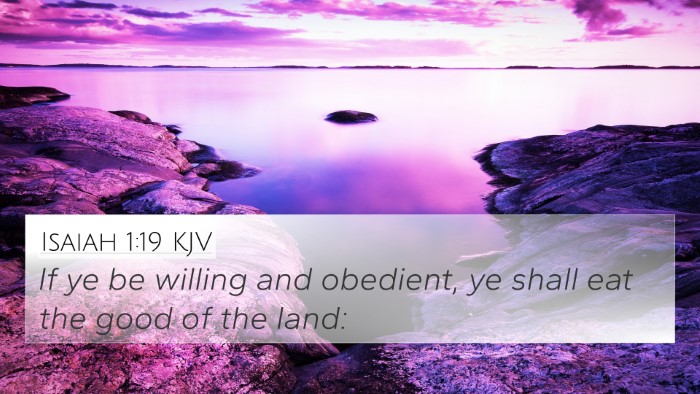Old Testament
Genesis Exodus Leviticus Numbers Deuteronomy Joshua Judges Ruth 1 Samuel 2 Samuel 1 Kings 2 Kings 1 Chronicles 2 Chronicles Ezra Nehemiah Esther Job Psalms Proverbs Ecclesiastes Song of Solomon Isaiah Jeremiah Lamentations Ezekiel Daniel Hosea Joel Amos Obadiah Jonah Micah Nahum Habakkuk Zephaniah Haggai Zechariah MalachiEzra 9:12 Similar Verses
Ezra 9:12 Cross References
Now therefore give not your daughters unto their sons, neither take their daughters unto your sons, nor seek their peace or their wealth for ever: that ye may be strong, and eat the good of the land, and leave it for an inheritance to your children for ever.
Uncover the Rich Themes and Topics of This Bible Verse
Listed below are the Bible themes associated with Ezra 9:12. We invite you to explore each theme to gain deeper insights into the Scriptures.
Ezra 9:12 Cross Reference Verses
This section features a detailed cross-reference designed to enrich your understanding of the Scriptures. Below, you will find carefully selected verses that echo the themes and teachings related to Ezra 9:12 KJV. Click on any image to explore detailed analyses of related Bible verses and uncover deeper theological insights.
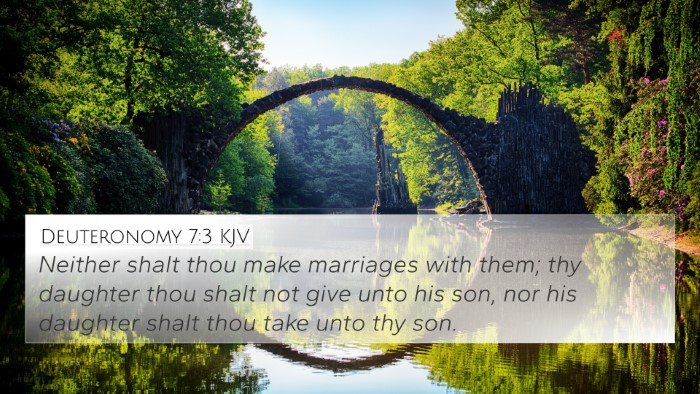
Deuteronomy 7:3 (KJV) »
Neither shalt thou make marriages with them; thy daughter thou shalt not give unto his son, nor his daughter shalt thou take unto thy son.
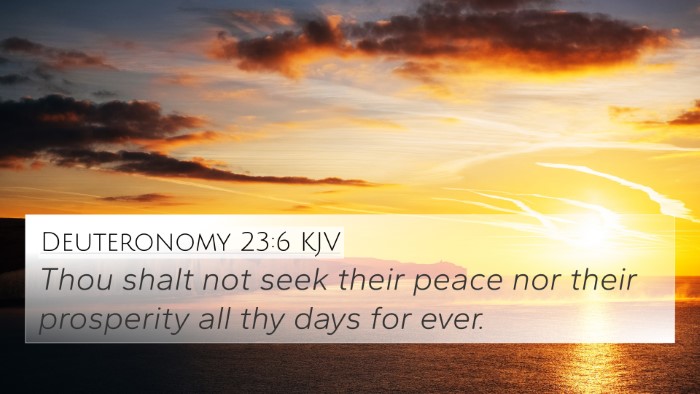
Deuteronomy 23:6 (KJV) »
Thou shalt not seek their peace nor their prosperity all thy days for ever.
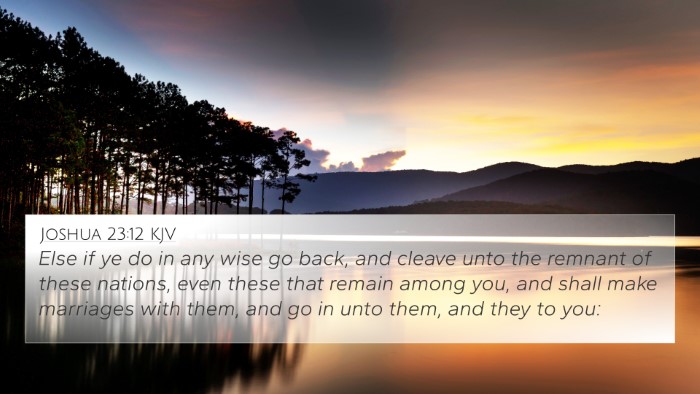
Joshua 23:12 (KJV) »
Else if ye do in any wise go back, and cleave unto the remnant of these nations, even these that remain among you, and shall make marriages with them, and go in unto them, and they to you:
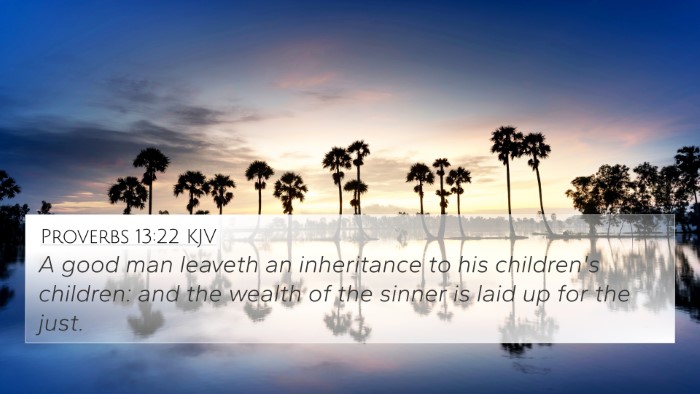
Proverbs 13:22 (KJV) »
A good man leaveth an inheritance to his children's children: and the wealth of the sinner is laid up for the just.
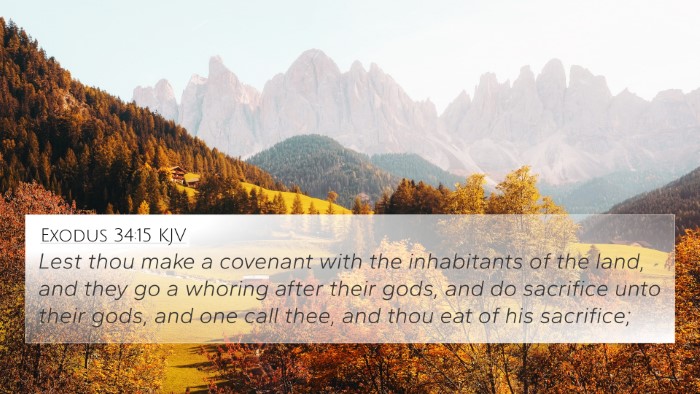
Exodus 34:15 (KJV) »
Lest thou make a covenant with the inhabitants of the land, and they go a whoring after their gods, and do sacrifice unto their gods, and one call thee, and thou eat of his sacrifice;

2 John 1:10 (KJV) »
If there come any unto you, and bring not this doctrine, receive him not into your house, neither bid him God speed:
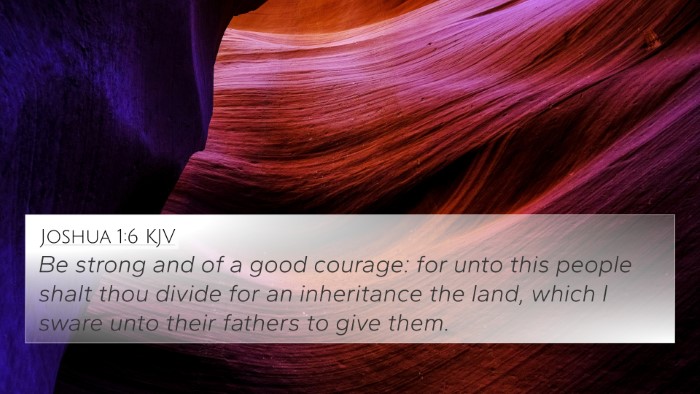
Joshua 1:6 (KJV) »
Be strong and of a good courage: for unto this people shalt thou divide for an inheritance the land, which I sware unto their fathers to give them.

Deuteronomy 6:1 (KJV) »
Now these are the commandments, the statutes, and the judgments, which the LORD your God commanded to teach you, that ye might do them in the land whither ye go to possess it:

2 Chronicles 19:2 (KJV) »
And Jehu the son of Hanani the seer went out to meet him, and said to king Jehoshaphat, Shouldest thou help the ungodly, and love them that hate the LORD? therefore is wrath upon thee from before the LORD.

Ezra 9:2 (KJV) »
For they have taken of their daughters for themselves, and for their sons: so that the holy seed have mingled themselves with the people of those lands: yea, the hand of the princes and rulers hath been chief in this trespass.

Psalms 112:1 (KJV) »
Praise ye the LORD. Blessed is the man that feareth the LORD, that delighteth greatly in his commandments.

Genesis 18:18 (KJV) »
Seeing that Abraham shall surely become a great and mighty nation, and all the nations of the earth shall be blessed in him?
Ezra 9:12 Verse Analysis and Similar Verses
Understanding Ezra 9:12
Ezra 9:12 states: "Now therefore give not your daughters unto their sons, neither take their daughters unto your sons, nor seek their peace or their wealth forever: that ye may be strong, and eat the good of the land, and leave it for an inheritance to your children forever." This verse addresses the issues of intermarriage and alliance with foreign nations, emphasizing the importance of remaining steadfast in covenantal purity and dedication to God.
Summary of Insights from Public Domain Commentaries
The insights from various public domain commentaries provide a rich understanding of this verse:
-
Matthew Henry:
Henry emphasizes that Ezra's directive is rooted in the preservation of the covenant with God. He warns against the dangers that come with intermarrying with those who do not share the same faith, as this could lead to spiritual decline and a loss of identity.
-
Albert Barnes:
Barnes highlights the broader context of Ezra 9 as a call to repentance and reform. He points out that this instruction aims to maintain the holiness of the people of Israel, reminding them of their unique covenant relationship with God, and the consequences of compromising their faith.
-
Adam Clarke:
Clarke elaborates on the social and spiritual implications of the verse. He explains that seeking peace and wealth through intermarriages with other nations implies a dependence on them rather than on God. Clarke urges readers to consider the long-term effects of forsaking divine commandments for social or economic gain.
Thematic Connections and Cross-References
Ezra 9:12 serves as a pivotal point in understanding the importance of covenant fidelity in the Old Testament. There are several Bible cross-references that enrich the study of this verse:
- Deuteronomy 7:3-4: This passage warns against intermarriage with the nations around Israel, similar to Ezra's concerns.
- Exodus 34:15-16: It addresses the dangers of forming alliances with people who worship foreign gods, paralleling the message of Ezra.
- 2 Corinthians 6:14: In the New Testament, Paul reiterates the theme of being unequally yoked with unbelievers, reflecting the importance of spiritual unity.
- Nehemiah 13:23-27: Nehemiah confronts similar issues of mixed marriages, evidencing the ongoing struggle for Israel's religious integrity.
- Psalms 106:34-35: This passage recounts Israel's failures to drive out foreign nations, highlighting historical consequences of intermarriage.
- 1 Kings 11:1-4: The story of Solomon’s alliances with foreign wives illustrates the dangers of compromising faith for political gain.
- Malachi 2:11: The prophet warns against treachery in marriage, reinforcing the principle that God desires faithfulness.
Connections between Bible Verses
Understanding Ezra 9:12 in light of these other passages reveals a consistent biblical theme: the necessity of maintaining pure worship and devotion to God without the influence of foreign entities. The consequences of deviating from this principle are well documented throughout Scripture, showcasing the continuity of this message across both the Old and New Testaments.
Conclusion
The verse emphasizes the importance of covenant purity by forbidding alliances with those outside the faith. Strengthening one’s relationship with God and preserving spiritual integrity is paramount. The recurring themes in Scripture serve as a guide to understanding the weight of these commands within the larger biblical narrative. For deeper studies, employing tools such as a Bible concordance and cross-reference guides can enhance your exploration of these connections.
Using Bible Cross-References Effectively
Engaging in cross-reference Bible study not only aids in understanding a single verse but also highlights the interconnectedness of God’s Word. Here are some ways to use cross-references effectively:
- Identify Themes: Look for overarching themes such as covenant fidelity and spiritual integrity that recur throughout the Bible.
- Contextual Study: Use a Bible cross-reference guide to examine passages that offer context, enhancing comprehension.
- Comparative Analysis: Analyze similar messages found in both the Old and New Testaments to see how they converge in meaning.
- Sermon Preparation: Utilize cross-referencing to find supporting verses that enhance teachings from specific Scripture texts.
In conclusion, comprehending Ezra 9:12 through cross-referencing allows for a profound grasp of biblical teachings on faithfulness and the importance of spiritual integrity in alignment with God's commandments. The historical and theological implications extend beyond Ezra's time, speaking relevantly to modern-day believers about the consequences of interfaith relationships and the necessity of maintaining a holy covenant with God.
